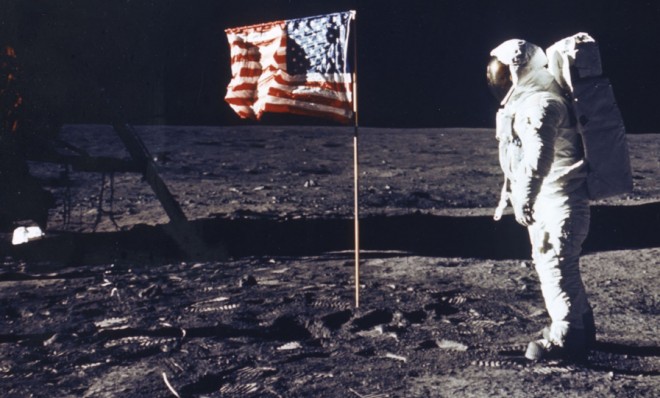Why conspiracy theories are good for America
The public square must be open to vigorous debates — even when the debaters themselves are boneheads

A free daily email with the biggest news stories of the day – and the best features from TheWeek.com
You are now subscribed
Your newsletter sign-up was successful
Often, harebrained conspiracy theories unjustly challenge America's accomplishments and painfully undermine our suffering.
But these wild theories are also testaments to our society. They show that America is still a place that engages in a vigorous, unending exchange of ideas.
And one thing's for sure: We have no shortage of conspiracy theories in this country, and just about everyone kind of enjoys hearing about them — even if they simultaneously drive us nuts.
The Week
Escape your echo chamber. Get the facts behind the news, plus analysis from multiple perspectives.

Sign up for The Week's Free Newsletters
From our morning news briefing to a weekly Good News Newsletter, get the best of The Week delivered directly to your inbox.
From our morning news briefing to a weekly Good News Newsletter, get the best of The Week delivered directly to your inbox.
This week, Glenn Beck is busy claiming that a Saudi national was involved in the Boston Marathon attack. Separately, a small but vocal group is demanding that suspect Dzhokhar Tsarnaev be freed.
On its face, you might find these ideas disgusting. Beck is arguably slurring an innocent man. Others have essentially formed a fan club for a suspected terrorist.
And yet... Tsarnaev is innocent until proven guilty. In this sense, his supporters are little more than amateur defense attorneys — odd and pathetic, perhaps, but harmless. And they're actually helping uphold the American tradition of a presumption of innocence. This is freedom.
And in the end, history is clear: Conspiracy theories serve the well-being of our country.
A free daily email with the biggest news stories of the day – and the best features from TheWeek.com
Consider Apollo 11. It's understandable that Buzz Aldrin doesn't enjoy accusations of being the 20th century's biggest liar. But he shouldn't worry. Bogus theories that America faked the moon landing evoke such fascination that they lead to information discovery. As a result of conspiracy-fueled curiosity, each new class of 10th graders may discuss fluttering flags and secret film sites, but in the end, the desire to know leads to the great majority's acceptance of reality. And in that journey of discovery, this amazing story of human adventure is renewed again and again. The conspiracy becomes the servant of history.
Or how about JFK conspiracy theorists? Yes, they've been debunked time and time again. However, by stimulating an enduring public fascination with JFK, conspiracy theorists have also helped foster a corollary fascination for the incredible political history of the 1960s. Civil Rights, the Cuban Missile Crisis, Vietnam… in some ways, conspiracy curiosity leads people to learn about America's history.
And then there's 9/11. Thermite, Building 7, F-16s and Flight 93, a cruise missile into the Pentagon. Extraordinary delusions matched only by the size of their followings. But once again, these conspiracies have yielded unintentional value for the cause of knowledge. They've revealed the powerful veins of anti-Americanism in Europe. They've reminded us that casual anti-Semitism is, sadly, alive and real. They've renewed our faith in the power of science to dispel idiocy. But again, most importantly, truthers have attracted our diligence to the real story of 9/11; indelible records of courage, of sacrifice, of suffering and of evil. The facts have won through.
Ultimately, the utility of conspiracies goes beyond their role as catalysts for our deeper awareness. They're also intrinsic to the health of our nation. Government can be a force for good or a source of harm. But thanks in part to our conspiracy culture, we ensure that for the most part, government is anchored to the scrutiny of the people. Sometimes conspiracy theorists find great malfeasance, other times they find the opposite of what they'd expected. Regardless of the outcome, their search is necessary.
Tom Rogan is a conservative writer who blogs at TomRoganThinks.com.
-
 How the FCC’s ‘equal time’ rule works
How the FCC’s ‘equal time’ rule worksIn the Spotlight The law is at the heart of the Colbert-CBS conflict
-
 What is the endgame in the DHS shutdown?
What is the endgame in the DHS shutdown?Today’s Big Question Democrats want to rein in ICE’s immigration crackdown
-
 ‘Poor time management isn’t just an inconvenience’
‘Poor time management isn’t just an inconvenience’Instant Opinion Opinion, comment and editorials of the day